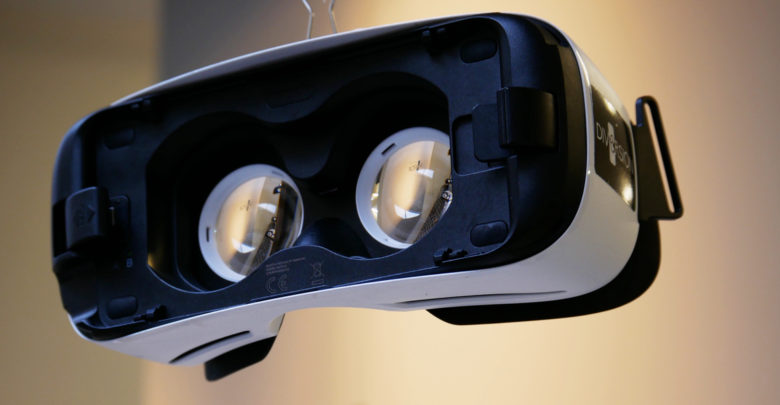 Supplied
SuppliedA University of Alberta researcher is looking at the brain mechanisms behind real-world memories with virtual reality (VR) technology.
Peggy St. Jacques, an assistant professor in the faculty of science, is currently examining the brain mechanisms of how real-world memories are formed. This is something which she claims has not been investigated enough due to the inability to create these memories while researchers use functional magnetic resonance imaging (fMRI). This is something she believes can be changed through the use of VR technology.
The main goal of St. Jacques’s research is to use fMRI scans to look at brain regions that support the ability to retrieve memories for complex real-world events — autobiographical memory events that are personally experienced. The VR technology is programmed to display a real-world setting through a 3D, 360 degree view in an immersive video format which provides the participant with the experience of being in a new setting while still being located in the lab.
“Hopefully people will feel as if [they are] present in those experiences and we can see how those memories are formed,” St. Jacques noted.
The next step of this process is to transfer it to an fMRI machine in which similar goggles will be used to present the video in 3D through two different cameras aligned with the participant’s eyes, which allow for depth to be created according to the distance between the two of them.
St. Jacques noted that although VR has been used in previous studies, it has mainly focused on the virtual reality aspect such as in video games. In comparison, this research brings the participant into the real world while still being in the lab, hence allowing them to control the experiences for a multitude of events, and noticing differences between participants in a controlled environment.
“I think VR is going to change the way we look at memory … we really put people in the real world when they’re in the lab,” she said.
Furthermore, she brought up the role of perspective in remembering memories.
“To remember, you need a particular viewpoint,” St. Jacques said.
When experiencing the event one is viewing it from a first-person perspective, but when one remembers this same experience the perspective can change so that they can sometimes see themselves in the memory. These changes in perspective during remembering can change the characteristics of memories such as their emotional intensity, accuracy, and vividness. St. Jacques introduced the question: why can some people not see themselves in their memories?
Moreover, she hopes this research will shed light on the impairments of memories through understanding their formations which could potentially aid patients suffering from Alzheimer’s or post-traumatic stress disorder (PTSD) since real-world events are at the root of those disorders.
Peggy St. Jacques also highlighted one honoured student in psychology — Milan Kalra — who helped record a number of the videos and develop their scripts.
She encouraged other students to join the research, especially those interested in VR technology or those with experience in programming, which sets them apart from the many psychology students already interested.
“We’re always happy to have people get involved in the research in our labs, even if they’re not a psychology student,” St. Jacques indicated.




